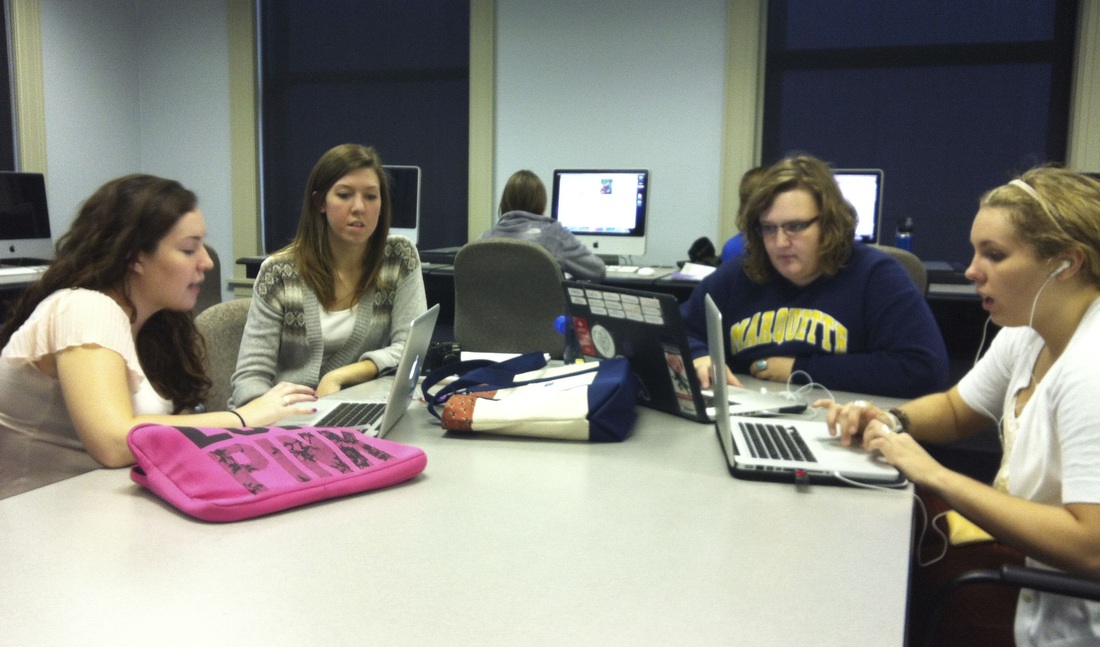This was the first time Sharon McGowan, the news service's editor-in-chief, and I teamed to enable my students to practice digital journalism in neighborhoods near Marquette's campus. It was definitely a learning experience for all involved and McGowan and I aim to collaborate again with my spring JOUR 1550 class.
In an email expressing her appreciation, McGowan said the students impressed her as motivated to do their best work. (Disclosure: their final grade was tied to being published.) "Your class has provided valuable content on some of the many organizations and people in Milwaukee’s central city who work every day to make a difference in their communities," she wrote. "I was also grateful for the opportunity to participate in the class critiques of the audio slideshows, since it allowed me to hear your students’ thoughtful comments on each others’ work. I learned a lot."
The most significant thing McGowan and I learned this time, especially related to my end: have the students' companion print stories submitted sooner to allow more time for editing and additional reporting. She also wants only one print story; this time, it would longer (650 words), multi-sourced and packaged with separate, single-sourced audio slideshows about both a provider and beneficiary from the assigned community group. We also will insist students move onto Plan B if an organization, for whatever reason, fails to provide timely access.
Here are the other JOUR 1550 reports the news service has published: Our Next Generation (Sarah Butler and Tessa Fox), Art Works for Milwaukee (Andrea Anderson and Rebecca French), COA Youth and Family Centers (Elizabeth McGovern and Benjamin Sheehan), Select Milwaukee (Erin Caughey and Heather Ronaldson), Habitat for Humanity (Sarah Hauer), Centro Legal (Kathleen Doherty and Allison Kruschke), Next Door (Alec Brooks and Ryan Ellerbusch) and Urban Ecology Center (Benjamin Stanley).

 RSS Feed
RSS Feed
